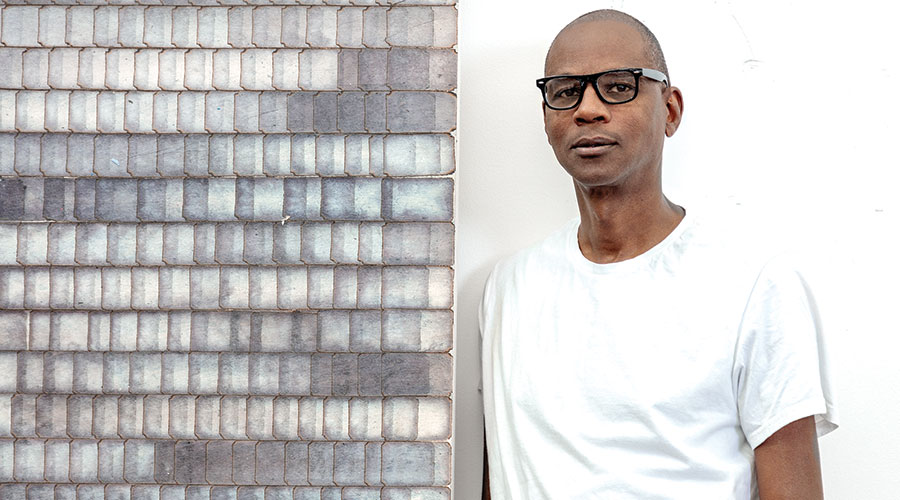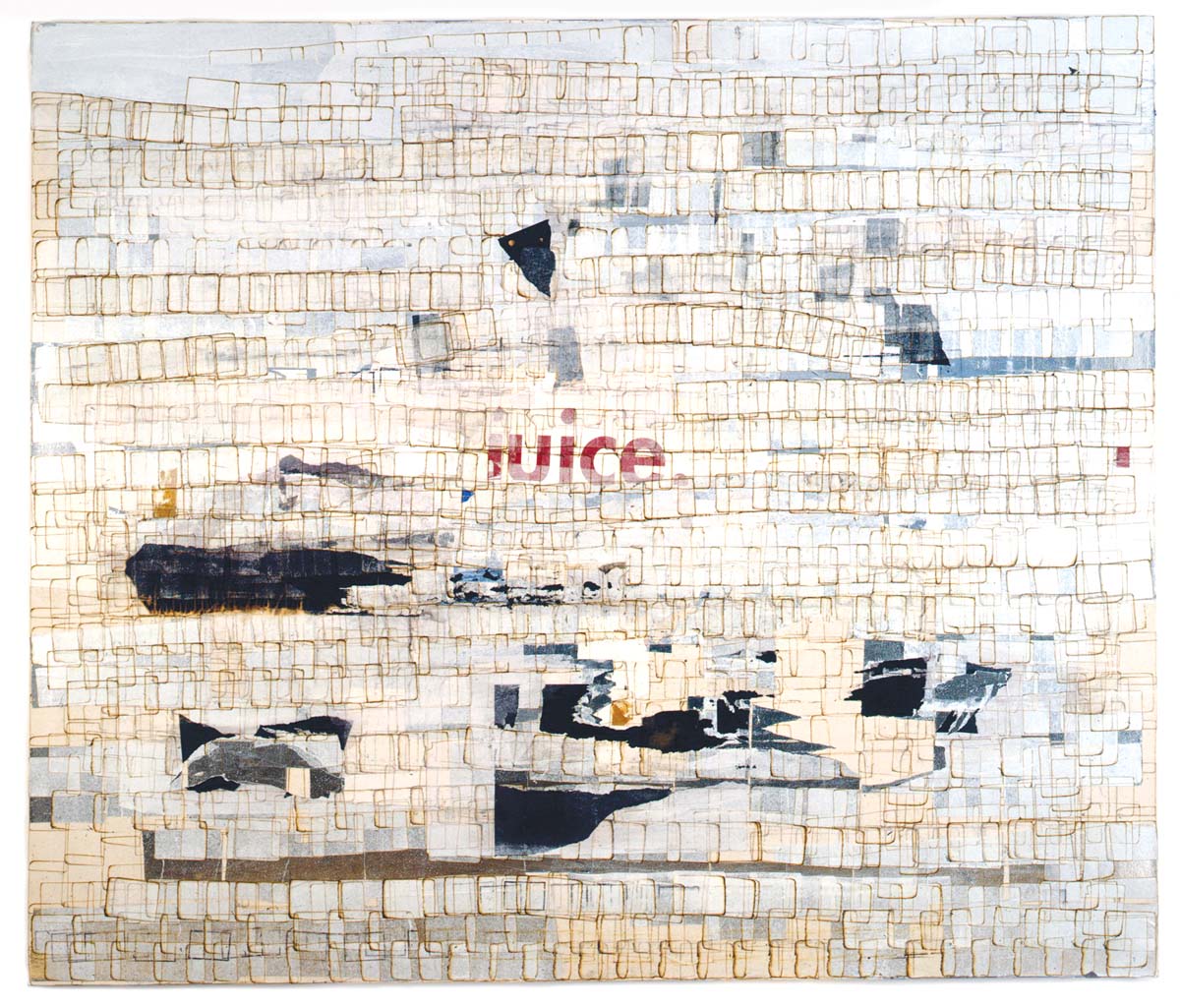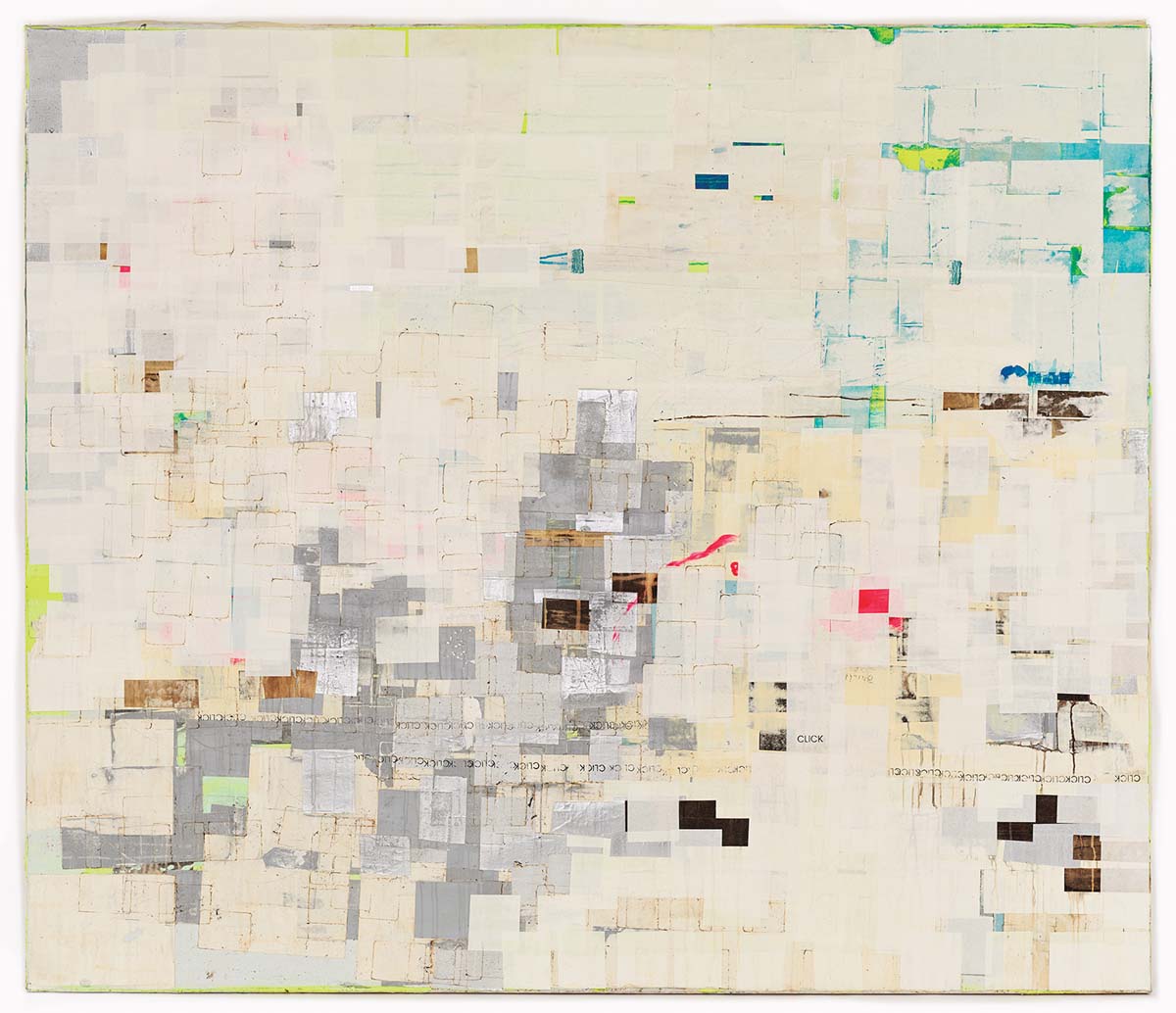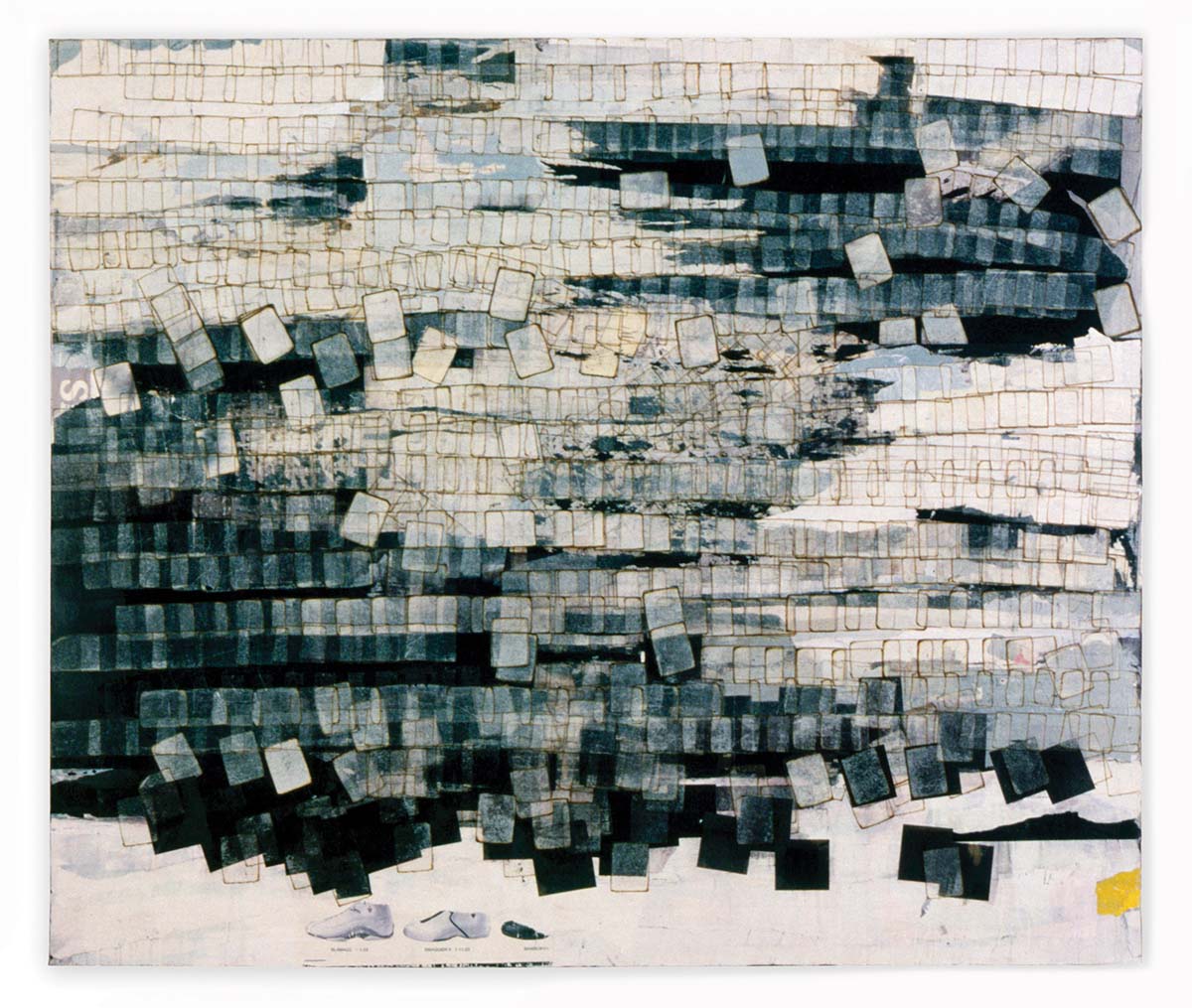
Paper Trail
By Meda Kessler
Above photo by Joshua White
Mark Bradford’s beauty shop background provided an unexpected medium for creating thought-provoking art.
Don’t feel uncultured if you’ve never heard of Mark Bradford. Anderson Cooper bumped into the tall, lanky artist outside a gallery in Los Angeles and had no idea who he was. Cooper soon realized that the man dressed in painter pants and a T-shirt actually was a real painter.
Thanks to Cooper, we learned more about the former hairstylist when the journalist spoke about his chance meeting on an episode of 60 Minutes last spring. Ultimately, Cooper and a film crew visited Bradford’s expansive studio, where oversize mixed-media canvases exploding with texture and color were leaned against the walls.
We get to see his work in person when “Mark Bradford: End Papers” opens March 8 at the Modern Art Museum of Fort Worth. The artist also will talk about his painting style and more during a March 3 lecture — part of the museum’s Tuesday Evenings series — along with the Modern’s Michael Auping, who curated the exhibition.
If you haven’t already googled Bradford’s work, know that the “end papers” referenced in the show’s title are literal ones. During his time in his mom’s beauty salon, Bradford discovered that the translucent papers used to roll hair were a perfect — and inexpensive — medium. He found that using a blowtorch to singe the end papers made the edges more visible. A clip from the 60 Minutes interview shows Bradford soaking sheets of colored paper in a shallow plastic swimming pool to make them malleable. Once the paper had dried on the canvas, Bradford used a power washer and a hand-held sander, among other items, to achieve the look he desired. Materials used included old billboards, recycled fencing and wood scavenged from post-Katrina New Orleans.
While success has found the artist who exhibits internationally and has earned numerous awards, he hasn’t forgotten his roots. Bullied as a child and crushed when friends died during the AIDS epidemic in the 1980s, he notes that both experiences serve as influences in his abstract paintings. The materials he uses also convey his feelings about race, poverty and other social issues. Too, among his longtime friends are two women who are former hairdressers. Galveston native — and Beyoncé’s mother — Tina Knowles-Lawson is the founder and artistic director of Tina’s Angels, which mentors young women. Cleo Hill-Jackson founded the African American Cosmetologist Hall of Fame. Influential in Bradford’s life and art, both women will join him at the March 3 lecture at the museum.
The artist who didn’t take art classes until he was 30 (and didn’t sell his first work until he was 40), today sells his pieces for millions. The reason why the artworks are so compelling varies from viewer to viewer. But as Anderson Cooper says, you don’t have to fully understand Bradford’s art to appreciate it. And, yes, he owns one.
THE DETAILS
Mark Bradford: End Papers The exhibition focuses on Bradford’s use of a common hair salon tool — end papers — to create his abstract paintings. Look for about 35 works sourced from private and public collections, plus some created for the Fort Worth show, which runs March 8-Aug. 9. At 7 p.m. March 3, Bradford joins curator Michael Auping and two friends for the Tuesday Evening lecture in the museum auditorium to talk about art, hair, beauty shop culture and more. Seating begins at 6:30 p.m., and seats are limited to 250. Learn more online at themodern.org/programs/lectures. 3200 Darnell St., Fort Worth, 817-738-9215, themodern.org.



